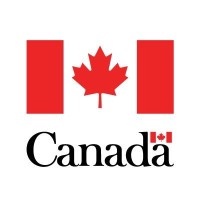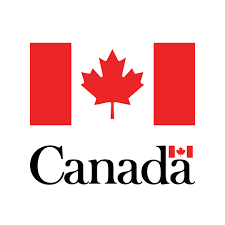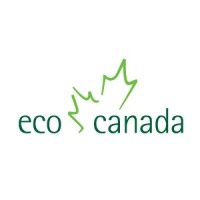
Closed
On-road Transportation Decarbonization — Demonstration Projects
Last Update: October 27, 2025
Canada
Funding for demonstration projects in transportation
Grant and Funding
At a glance
Funding available
Financing goals
Integrate new technologies
Develop a new product
Research and experimental development
See more
Eligible Funding
- Maximum amount : 5,000,000 $
- Minimum amount : 1,000,000 $
- Up to 75% of project cost
Timeline
- Open Date : May 25, 2023
- Closing date : July 20, 2023
Eligible candidates
Eligible Industries
- Utilities
- Manufacturing
- Transportation and warehousing
- Professional, scientific and technical services
- Public administration
Location
- Canada
Legal structures
- Non-profit
- Public or Parapublic institution
- For-profit business
Annual revenue
- All revenue ranges
Organisation size
- All organization sizes
Audience
- Indigenous Peoples
- Canadians
Non-profit candidates
Sector of operation
- Research
- Environment
- Economic, Social and Community Development
- Business Associations
- Diversity and Inclusion
Target groups
- Indigenous peoples
- Rural / Remote communities
- Business owners / entrepreneurs
- Nonprofits / charities
- Academia / students
Revenue structures
- All structures
Scope
- Municipal
- Regional
- Provincial
- National
Overview
Non-repayable contributions up to $5 million for demonstration projects that address barriers to the uptake of zero-emission on-road vehicles or improve the overall transportation system efficiency.
Activities funded
This grant supports projects that aim to decarbonize the transportation sector by fostering innovation in low- and zero-emission vehicles and their supporting infrastructure. Eligible projects are targeted at overcoming the technological and market barriers within Canada's transportation industry.
- Development and testing of novel and innovative equipment, vehicle components, software, and methodologies including prototypes and field trials.
- Installation of pre-commercial technology to operate in its intended environment for demonstration purposes.
- Modification of existing systems to integrate new, innovative technologies or processes.
- Engineering, design, and permitting associated with installing demonstration infrastructure.
- Operation and performance testing of innovations in the transportation environment to evaluate efficacy.
- Reducing cost/performance ratios for electric powertrain components and hydrogen fuel cells.
- Demonstration of novel uses of battery electric and hydrogen fuel cell MHDVs.
- Improving on-road vehicle energy efficiency through innovative design and new materials.
- Innovative charging solutions addressing infrastructure challenges for zero-emission vehicles in specific contexts such as rural or multi-unit residential scenarios.
Examples of admissible projects:
$ 5,000,000
Development of hydrogen fuel cell buses to improve urban transportation efficiency
$ 3,800,000
Electrification of municipal vehicle fleet to promote sustainability in city operations
$ 4,000,000
Electric truck fleet demonstration to promote zero-emission transportation in logistics
$ 4,000,000
Smart traffic management system installation to reduce urban emissions through improved traffic flow
$ 3,000,000
Conversion of traditional taxis to electric vehicles for a green urban mobility solution
Eligibility
- The applicant must be a legal entity incorporated or registered in Canada, such as a for-profit business, not-for-profit organization, community group, academic institution, provincial, territorial, regional, or municipal government or agency, or an Indigenous organization, business, or community.
- The project must fall under research and development (R&D) or demonstration activities focused on decarbonizing on-road transportation within Canada.
- Projects must address technical or market innovation barriers related to low- and zero-emission on-road medium- and heavy-duty vehicles or infrastructure supporting on-road zero-emission vehicles and system efficiency.
- Projects cannot consist solely of the purchase of commercially available vehicles or supporting infrastructure.
- The applicant must be the majority owner of any assets purchased with program funding.
Who is eligible?
- For-profit organizations (including companies and utilities) incorporated or registered in Canada
- Not-for-profit organizations (such as industry associations, research associations, and standards organizations)
- Community groups
- Canadian academic institutions
- Provincial, territorial, regional, and municipal governments and their departments and agencies
- Indigenous organizations and businesses
Who is not eligible
- Companies whose projects consist solely of purchasing commercially available zero-emission vehicles (ZEVs) or associated infrastructure.
- Organizations focused exclusively on off-road vehicles (mining, forestry, agriculture, construction) or their supporting infrastructure.
- Businesses engaged primarily in other modes of transportation (air, rail, marine) or their supporting infrastructure.
- Entities involved in battery supply chain, manufacturing, or inside-the-cell components.
- Companies whose primary activity is energy storage or grid-side solutions that are asset-agnostic.
Eligible expenses
- Salaries and benefits for employees working on the project.
- Professional, scientific, technical, and contracting services.
- Reasonable travel expenses, including meals and accommodation, based on government rates.
- Capital expenditures for the purchase, installation, testing, and commissioning of qualifying equipment, materials, and products (including diagnostic and testing tools and warranties).
- Laboratory and field supplies, and materials.
- Printing and translation services.
- Data collection services, including processing, analysis, and management.
- Facility costs for meetings, seminars, or conference room rentals.
- Licence fees and permits.
- Capacity building and training.
- Field testing services.
- Overhead expenses directly related to the project, up to 15% of eligible expenses.
- For Indigenous proponents: costs associated with Indigenous ceremonies (excluding hospitality) and honoraria for Elders.
Eligible geographic areas
- Legal entities incorporated or registered in Canada.
- Provincial, territorial, regional, and municipal governments and their departments and agencies within Canada.
- Indigenous communities and organizations located in Canada.
Selection criteria
- Collaboration and leveraging: Projects that leverage funding from non-government sources receive additional points in the evaluation.
- Support for departmental priorities: Projects may be selected based on support for regional balance in Canada, advancing inclusion, diversity, equity, and accessibility (IDEA), and socio-economic considerations.
How to apply
1
Determine Eligibility
Review the Applicant's Guide to ensure that your organization and project meet the set eligibility criteria.
2
Expression of Interest (EOI)
- Complete and submit your Expression of Interest (EOI) via the Applicant Portal by the specified deadline.
- Your EOI will be reviewed by a technical expert panel.
- Await notification of your EOI evaluation results.
3
Full Project Proposal (FPP)
- If invited, complete and submit a Full Project Proposal (FPP).
- Your FPP will undergo evaluation by a technical expert panel.
- NRCan will notify applicants of the FPP evaluation results.
Additional information
- Quarterly and yearly reporting is required for funded projects, with ongoing data collection for five years following project completion.
- Applicants may be asked for permission to share their application with other funding organizations for potential co-funding or referrals.
- Successful projects must complete a due diligence assessment before finalizing a contribution agreement.
- Providing voluntary information on inclusion, diversity, equity, and accessibility (IDEA) may be considered in project selection, though not scored.
Apply to this program
Frequently Asked Questions about the On-road Transportation Decarbonization — Demonstration Projects Program
Here are answers to the most common questions about the On-road Transportation Decarbonization — Demonstration Projects. This section explains what the program is, how much funding is available, eligibility requirements, application deadlines, and other important details to help you determine if this grant is right for your business.
What is the On-road Transportation Decarbonization — Demonstration Projects?
How much funding can be received?
What is the deadline to apply?
Who is eligible for the On-road Transportation Decarbonization — Demonstration Projects program?
What expenses are eligible under On-road Transportation Decarbonization — Demonstration Projects?
Who can I contact for more information about the On-road Transportation Decarbonization — Demonstration Projects?
Where is the On-road Transportation Decarbonization — Demonstration Projects available?
Apply to this program
More programs like this

Grant and FundingClosed
Industrial Research Assistance Program (IRAP) – AI Assist
National Research Council Canada (NRC)Supports Canadian SMEs in adopting and integrating advanced AI solutions

Tax CreditsOpen
Clean Technology Manufacturing (CTM) Investment Tax Credit (ITC)
Canada Revenue Agency (CRA)Incentivize Canadian companies to invest in clean technology

Partnering and CollaborationGrant and FundingOpen
Strategic Innovation Fund (SIF)
Innovation, Science and Economic Development Canada (ISED)Strategic Innovation Fund supports transformative Canadian economic investments

Grant and FundingOpen
Incentives for medium and heavy-duty zero-emission vehicles (iMHZEV) Program
Transport Canada (TC)Incentives to purchase or lease medium- heavy-duty ZEVs

Wage Subsidies And InternsOpen
Industrial Research Assistance Program (IRAP) — Youth Employment Program (YEP)
National Research Council Canada (NRC)Money to hire a student

Researchers And FacilitiesPartnering and CollaborationWage Subsidies And InternsOpen
Mitacs Accelerate
MitacsConnect organizations with academia for research and innovation collaboration

Grant and FundingClosed
ISED — Artificial intelligence (AI)
Innovation, Science and Economic Development Canada (ISED)Supports testing innovative AI prototypes for Canadian government needs

Grant and FundingOpen
Global Innovation Clusters
Innovation CanadaFinancial assistance to work in collaboration on innovation projects

Grant and FundingOpen
IP for Business
Canadian Intellectual Property Office (CIPO)Intellectual property training, tools and expertise

Wage Subsidies And InternsOpen
ECO Canada — Student Work Placement Program
ECO CanadaMoney to hire students for an environmental co-op
Sign up to our platform to access the On-road Transportation Decarbonization — Demonstration Projects information sheet for free
Get access to 4,000+ programs, practical guides, personalized alerts, and an AI assistant to support your grant applications.